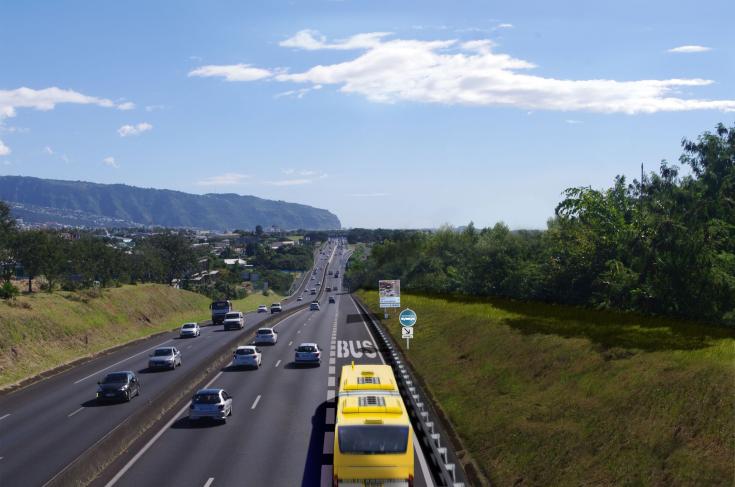Mobility on islands & participatory processes: key learnings

On 14-16 November 2023, the Policy Learning Platform organised an online peer review for the Regional Council of La Reunion (France) which requested advice regarding their two policy challenges ‘Sustainable mobility on islands’ and ‘Uptake of results from participatory processes’.
Current state of affairs
La Reunion carried out a major public consultation on the global mobility policy of the island and received 11,000 contributions. The major objectives emerging from the consultation of citizens have been outlined in an Interim Report. The citizens underlined the need to improve and develop the public transport network and to implement key public transport projects.
Furthermore, the current traffic conditions should be improved, soft modes of transport such as cycling should be better promoted and everyday travel needs to be limited. Finally, it was highlighted that La Reunion should organise shared governance and include public participation in decision-making. As a next step, the Regional Council of La Reunion aims to implement the key objectives stemming from the consultation and was seeking input and inspiration from peers for the design of the future mobility policy on the island.
Peers from across Europe
Alongside Katharina Krell and Astrid Severin, our Thematic Experts on ‘Greener Europe’, six excellent peers participated in the peer review:
- Carlos Carrillo, Head of External Relations, TITSA Interurban Transport of Tenerife, Spain
- Miguel Quinto, Director for Energy Efficiency, Regional Directorate for Energy, Government of the Azores, Portugal
- Claudio Mantero, Head of Research and Planning Department, Horarios de Funchal, Madeira, Portugal
- Dr. Ioannis Politis, Head of Transportation Engineering Laboratory, Aristotle University of Thessaloniki, Greece
- Dr. Raffaele Cattani, Unit of Regional Public Transport, Liguria Region, Italy
- Jeffrey Matthijs, Director, autodelen.net, Belgium
The peers from other islands and territories with challenging terrain comparable to La Réunion shared their experience and provided tailored policy recommendations. They provided the host with valuable insights, know-how, and practical suggestions for solving the challenges presented above.
Our recommendations in a nutshell
To address the distributed and fragmented responsibility for mobility policy, infrastructure and operations, it would be important to have a well-functioning umbrella authority to help cooperation and coordination amongst the 6 public transport network operators, to help with tendering and contracting. The umbrella authority could serve as service centre for all services that are shared amongst the smaller entities.
The peers further recommended a holistic regional / island-wide approach to mobility planning, allowing to better coordinate the different entities involved in mobility governance. To mitigate potential conflicts between short election cycle and long-term mobility policy goals and projects, legally binding documents, rolling actions plans and private sector contracts can help ensuring continuity in mobility policy.
To improve the overall mobility situation and to address the endemic congestion problem, mobility policy should rely on regular data monitoring to raise quality data to better plan and manage the public mobility offer. Holistic mobility planning with attention to network coherence and measures to both address peak demand and to reduce demand peaks is helpful.
The true need to heavy infrastructure investments should be fully assessed including a cost-benefit analysis. The improvement of the quality of service, timetables, network, coverage and assets for public transport is necessary, with better attention to intermodal connections. Active modes of mobility should be promoted and integrated through MaaS platforms with the public transport offer.
While not solving the congestion problem, e-mobility should be promoted to decarbonize transport, coupled with a strong renewable energy development plan, linking green energy and e-mobility on the island, harnessing locally available resources and reducing energy import dependency. Ride-sharing and car sharing, ideally EV-sharing are all desirable policy choices for La Réunion.
Download the report
Download the follow-up report from the peer review below.
Peer review report - Mobility in La Réunion.pdf

“We have received very interesting input, and it was useful to have this interaction. We will certainly be in touch with the peers for future cooperation and exchanges, in particular on governance, MaaS ticketing and socio-economic impact assessment for big projects.”
“On behalf of the Regional Directory of Energy – Azores, we would like to express congratulations for such rich meeting which was so well led and organised by the Interreg Europe Policy Learning Platform. We are, as always, available to join any future activities.”

Peer review publication
Find more information on the methodology and experiences of previous beneficiaries in our publication.

Apply for a peer review
Start your peer review application process today and find solutions to your policy challenge with our expert and peers!


